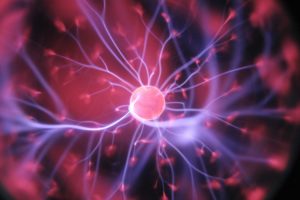Regardless of whether they are scientists or not, those who reach the existence of God by rational inquiry, reach it on the basis of grounds which are ultimately beyond the domain of science. This article will explain why scientific categories, assumptions, and procedures are inadequate tools to prove the existence of God.
It is to be noted first that the clear distinction is drawn today between science, philosophy, and religion is widely recognized as one of “the most characteristic cultural achievement of modern times” (“Symposium on Science, Philosophy, and Religion: God and the Professors,” in “The M. J. Adler Archive,” accessed 20 January 2012).
These three broad categories of knowledge are radically different in the objects known as well as with respect to the methodologies they use.
What is Modern Science is Characterized by?
Modern science is characterized (a) by careful and abundant observation and experiment, and (b) by the generalization of the results into formulated laws and statements. Modern science comprises many branches but despite the diversity of fields, scientific research makes use of the common logic of the scientific method.
Today, one cannot fail to recognize that the ‘unreasonable’ effectiveness of mathematics in scientific research is a point beyond contention. Among the many features of scientific inquiry, it is the alliance of the scientific method with the mathematics that most clearly defines modern scientific research. Method and measure are the code of discipline for the scientist. (1)
The methodology of philosophy
The methodology of philosophy, on the other hand, is not confined to objects of sense-experience as is the methodology of science and technology. Philosophical reasoning is able to rise from the empirical realm to the theoretical and thus provide an array of metaphysical notions which then become useful tools for the apprehension of the truth.
The basic assumptions that the material world is comprehensible and that all material existents bear within themselves the mark of intelligibility are truths that enjoy metaphysical certitude because these truths constitute solid and rigorous support for the process of reasoning to begin, for it to achieve full realization, and for it to avoid self-destruction.
Philosophy differs from science
Philosophy differs from science in that the first principles of sound philosophical knowledge are metaphysical principles, and metaphysics is valid knowledge of both sensible and suprasensible being.
 With the methodology of sound philosophy, it is possible to draw out some fundamental aspects of reality which the scientist inadvertently dismisses as ‘taken for granted.’ But when fundamental premises are not anchored in sound philosophy, one ends up not having the appropriate tools for the apprehension of the truth.
With the methodology of sound philosophy, it is possible to draw out some fundamental aspects of reality which the scientist inadvertently dismisses as ‘taken for granted.’ But when fundamental premises are not anchored in sound philosophy, one ends up not having the appropriate tools for the apprehension of the truth.
Take for example the philosophical position initially advanced by the Vienna Circle in 1929. The aim of the Vienna Circle – founded by Moritz Schlick (1882-1936) – was to further empower the validity of science concretely at the foundational level of knowledge.
To accomplish this aim the Vienna Circle considered it necessary to remove all meaningful metaphysical statements not only from science but from the whole realm of intellectual knowledge. They called metaphysics ‘nonsense’ and proceeded to grant power to science by proclaiming one principle to be the only valid and universal principle of knowledge, namely, the verification principle: ‘a proposition is meaningful only if it is verifiable.’
The underlying presupposition evidently was that the whole of reality is the exclusive domain of the empirical sciences. But very soon they ran against a serious philosophical objection: the verification principle is itself unverifiable. In other words, since it is not itself scientifically verifiable, must it not be meaningless as well?
It was the philosopher Friedrich Waismann (1896-1959) the one who later recognized that it is nonsense to say that metaphysics is nonsense. Also Alfred Jules Ayer (1910-1989) conceded later that, from the epistemological restrictions imposed by the Vienna Circle, the meaninglessness of metaphysical statements did not follow.
And Otto Neurath (1882-1945) in his exchanges with Rudolf Carnap (1891-1970) argued that the revision Carnap made to the original thesis meant at once to reintroduce the transcendental entities of metaphysics. The project was not abandoned totally but every modified version of the verification principle required elaborate justifications which, if not hopeless, were at least questionable. (2)
And here is where a careful assessment of the methodologies employed by different branches of knowledge becomes relevant. For a complete understanding of the whole of the world, the methodology of the natural sciences is not enough. The complementary contribution of sound philosophy and revelation is needed.
One does not have to be a metaphysician to make use of the first principles of metaphysics, but as Pope John Paul II (1920-2005) stresses “the experience of metaphysical knowledge falls within the competence of philosophical analysis and reflection.” (3)
John Paul II spoke about the notion of ‘meta-scientific concepts’ which the scientist must use to describe and formalize the data of experience. And he indicated that “it is useful to state exactly the nature of these concepts in order to avoid proceeding to undue extrapolations which link strictly scientific discoveries to a vision of the world, or to ideological or philosophical affirmations, which are in no way corollaries of it. Here one sees the importance of philosophy.” (4)
A scientific theory is a meta-scientific elaboration, distinct from the results of observation. Thus, beyond the scope of science, the scientists as persons endowed with intelligence and free will, are capable, for example, of identifying internal contradictions in the general assumptions of the theories they work with.
Of course, the scientists’ major concern is that scientific theory be consistent with the results of observation but at a different level and regardless of their awareness, the scientists are also working with the meta-scientific notions that the scientific theory borrows from sound thinking. This concomitant level of reasoning is not devoid of rules and it requires as a well rigorous observance. At the meta-scientific level, the tools and principles of meta-scientific modes of inquiry must be used.
 Consequently, we must not draw the conclusion that scientists in their scientific studies are unable to find valid reasons for venturing into areas of knowledge that transcend science. If science as such is not properly equipped to do so, the scientist, as an intelligent being, can discover, in the material sensible world, reasons for affirming meta-scientific truths, including of course God’s existence.
Consequently, we must not draw the conclusion that scientists in their scientific studies are unable to find valid reasons for venturing into areas of knowledge that transcend science. If science as such is not properly equipped to do so, the scientist, as an intelligent being, can discover, in the material sensible world, reasons for affirming meta-scientific truths, including of course God’s existence.
In fact, one does not have to be a scientist to become aware of the marvelous order that characterizes the material world. Nor does one need to be a scientist to rise from the observation of order to the contemplation of the existence of God.
Science indeed confirms again and again with more precision than ever that there exists order in nature, but the ‘jump’ from the observation of order to the existence of God is not a scientific conclusion. Were that to be the case, all scientists, in compliance with the scientific method, would mathematically subscribe to that conclusion.
Those who reach the existence of God by rational inquiry, regardless of whether they are scientists or nonscientists, reach it on the basis of grounds that are ultimately beyond the domain of science.
The autonomy of each discipline requires a clear demarcation of methodologies. But their overlap and complementarities are not to be despised, or rejected.
Consider the following: The scientific method as a measure-oriented methodology generates knowledge of the details. Science makes things ‘speak’ by means of an empirical test. For that reason, in science, the meta-scientific priority must always be given to the empirical data.
If the empirical data is not there to support a theory, the lack of evidence cannot be scientifically replaced by faith in the theory, nor by making the theory a basic philosophical position, which could easily be groundless not only on scientific grounds but also philosophically.
Another important difference is the fact that philosophy establishes moral conclusions and science does not.
The scientific method with its alliance to mathematics is indeed an exercise of reasoning. But it affords knowledge of only some aspects of the real. It deals with provisional and partial truths. Science tends towards the imposition of mathematical precision on the material world.
The object of human intelligence, however, is not limited to things of sense-perception. Beyond the consideration of the material world, human reason can discover the path towards transcendental metaphysical principles.
One of these metaphysical principles is the act of being – ‘actus essendi‘ – which was identified in “Fides et Ratio” as a definitive, valid, and unfailing point of reference. This principle ensures that man’s orientation towards truth stays within authentic, impartial, nonarbitrary limits. In fact, the transcendental value of the metaphysical principle of ‘actus essendi’ paves the most direct way to acquiring knowledge of suprasensible realities. (See Pope John Paul II, “Fides et Ratio,” 1998, no. 97; and John Paul II, “The Angelicum Address,” 1979, no. 6.)
Metaphysics has not lost its enduring value. In recent years philosopher, Hilary Putnam has addressed this issue from the perspective of the relations between scientific and nonscientific knowledge.
In his insightful analysis, Putnam stresses what he calls his ‘manifesto’ that it is time to get over the idea that science exhausts rationality.
According to Putnam the view that science exhausts rationality “is seen to be a self-stultifying error.” For “the very activity of arguing about the nature of rationality presupposes a notion of rationality wider than that of laboratory testability. If there is no fact of the matter about what cannot be tested, then there is no fact of the matter about any philosophical statement, including that one.” (5)
Putnam recognizes the existence of and the importance of ‘knowledge outside the exact sciences’ and shows that some nonscientific knowledge is presupposed by science.
Besides, in addition to knowledge afforded by the natural light of reason, we also have revealed the truth. Theology is properly distinguished from both science and philosophy as a supernatural knowledge that man cannot have without God’s direct aid.
Religion is not founded on science
John Paul II states it clearly, “religion is not founded on science nor is science an extension of religion. Each should possess its own principles, its pattern of procedures, its diversities of interpretation, and its own conclusions.” (6)
One must distinguish, the Pope continues, “between the scientific approach to natural phenomena and a reflection on nature of the philosophical order, which that approach generally calls for.
“It cannot be said that scientific theories of themselves provide a proof of the doctrine of creation, or that, on the contrary, they render it useless. A further work of interpretation is needed. This is precisely the object of philosophy. Philosophy considers phenomena just as much as their interpretation.”
Thus, the question of God’s existence has to be remanded by the natural sciences to other modes and planes of thought, to philosophy and revelation. Science as such cannot prove God exists.
And those who while advancing in the school of science and technology claim to have found proof for the existence of God are in fact using the complementary contribution of the school of sound philosophy or of the school of revelation or of both. Furthermore, oftentimes they do use these complementary tools without even realizing they are doing so, due to a lack of training in philosophical thinking and theological science.
This paper has stressed the importance of the following observations:
(a) That different branches of knowledge call for different methods.
(b) That the proofs of God’s existence fall outside the domain of the methodology of the natural sciences.
(c) That the ‘jump’ from the observation of order in nature to the existence of God is not a mathematico-scientific conclusion.
(d) That both the scientist and the nonscientist can extrapolate beyond science, set in motion their capacity for metaphysical inquiry, and use the metaphysical principles of the real or the principles of revelation or both – and some significant empirical data as well but not science as such – to prove the existence of God.
Notes
(1) See Eugene P. Wigner, “The Unreasonable Effectiveness of Mathematics in the Natural Sciences,” in “Symmetries and Reflections,” (Cambridge, Massachusetts: M.I.T. Press, 1970), pp. 222-237.
(2) See “Complete Dictionary of Scientific Biography,” ed. Charles Coulston Gillispie, (Detroit: Charles Scribner’s Sons, 2008), pp 43-46 and 177-179.
(3) Pope John Paul II, “Message to the Pontifical Academy of Sciences,” 22 October 1996, in “L’Osservatore Romano English Weekly Edition,” 30 October 1996.
(4) John Paul II, “Faith Can Never Conflict with Reason,” “Address to the Pontifical Academy of Sciences,” 31 October 1992, in “L’Osservatore Romano English Weekly Edition,” 4 November 1992.
(5) Hilary Putnam, “Pragmatism and Nonscientific Knowledge,” in “Hilary Putnam: Pragmatism and Realism,” ed. James Conant and Urszula M. Zeglen, (London: Routledge Press, 2002), pp 14-24.
(6) John Paul II, “Our Knowledge of God and Nature: Physics, Philosophy and Theology,” “Letter to the Director of the Vatican Observatory,” 1 June 1988, in “L’Osservatore Romano English Weekly Edition,” 14 November 1988.






